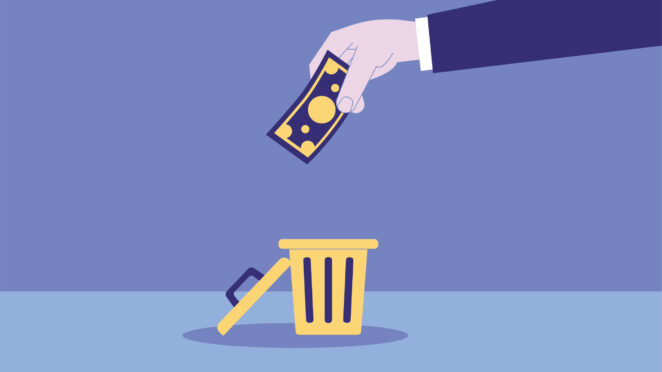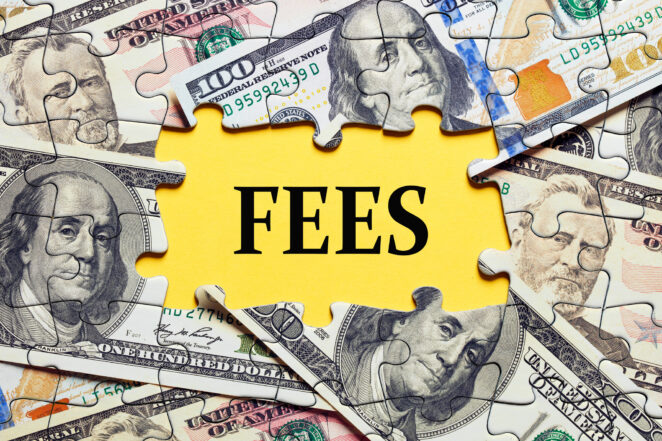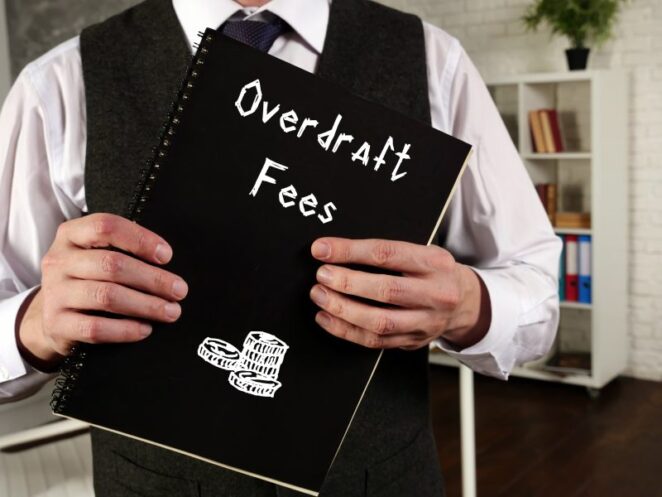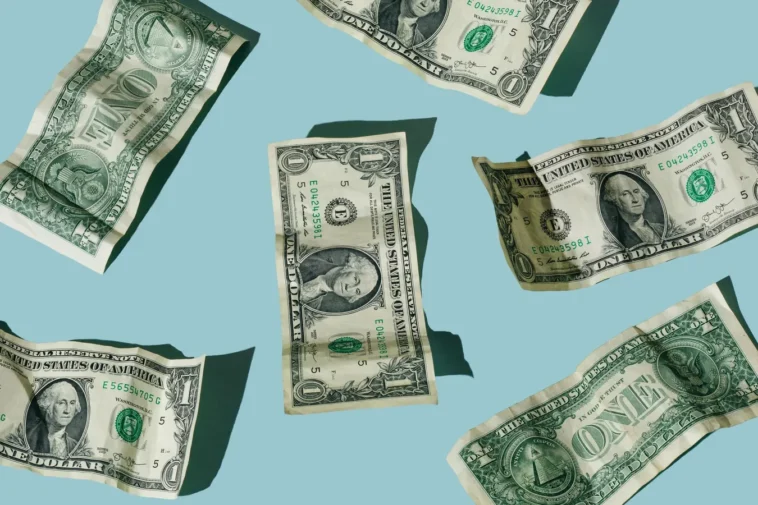Junk fees are annoying. You might find them applied to a chequing account, line of credit, and even your mortgage. But just because junk fees are possible in the financial world doesn’t mean you are stuck paying them.
You can avoid the surprise of a junk fee on your bill by taking charge of your finances. Keep scrolling to learn more about junk fees and how to avoid them.
Junk Fees, a Definition

Junk fees are hidden charges that inflate the cost of a financial product.
So, what? After all, charges apply to nearly every financial product. What makes junk fees different from the typical costs?
Junk fees stand out from the rest of the typical charges applied to financial services because of the way they’re concealed. They’re often buried in the dense legalese of your contract.
If you don’t pay attention to your terms and conditions, you can overlook the charge completely. The first time you learn about a junk fee may be when you see it applied to your bill, months after you sign up for an account or service.
By then, it’s too late; you must pay this fee even though you weren’t aware it existed before your bill.
5 Examples of Junk Fees
Junk fees are a common complication of modern banking, so you might feel like there’s no way around them. Luckily, you have some recourse. By knowing where financial institutions typically hide their junk fees, you can learn how to spot them long before you sign a contract.
Here are five junk fees you have the greatest chance of encountering today:
1. Draw Fees

If you’re like many people, you have a line of credit open in your name. This can be a smart money move in these cash-strapped times, as your account provides a critical backup to your savings. You can draw against your limit to cover an unexpected expense you can’t afford out of pocket. A line of credit gives you the flexibility to pay this amount back over time in more affordable chunks.
If you use your line of credit in an emergency, a draw fee might come as a total surprise when you eventually get your bill. Some financial institutions apply this charge any time you use your account.
Note that draw fees go above and beyond the usual interest applied to the amount you use; it’s a separate charge you incur every time you make a draw.
Luckily, you don’t have to suffer unnecessary draw fees if you shop around for your line of credit provider. A lender like Fora sticks to what you expect out of a typical line of credit: interest on the amount you use. Otherwise, the typical Fora Credit line of credit does not come with draw, origination, annual, or even late fees.
2. Cash Advance Fees
In an emergency that requires cold, hard cash, you might turn to your credit card for a cash advance. Most credit card companies will let you take cash out from your account, but they treat these draws differently from the typical online payment.
For one thing, your card issuer will apply a fee for every advance you request. They usually choose the bigger of these two: a flat fee or the percentage of your advance transaction.
For another, cash advances typically accrue a larger annual percentage rate (APR) than the typical transaction. These rates can be as high as 30%, nearly twice your normal interest.
You can find a credit card that doesn’t apply cash advance fees. But watch out — they often come as a perk rolled into an account with annual fees. Be sure to read the full terms and conditions to make sure you don’t swap an advance fee for an annual fee.
3. Account Maintenance

Some of the biggest banks in the world won’t let you open a simple chequing account without first charging you for the privilege. It’s not just a one-time thing, either. They apply monthly maintenance fees that may range from $4 to $35, depending on your account perks.
Your bank is another factor in how much you pay to keep a basic chequing account open, which means you have some leeway when it comes to this charge. You might be able to avoid paying maintenance fees by avoiding the Big Five for lesser-known challenger banks.
Challenger banks tend to operate entirely online, which means you might lose out on a physical branch you can visit in person. Without branches, an online bank doesn’t have the same overheads as the Big Five, and they trickle down these savings in the form of no-fee accounts.
4. Bank Account Limits
Some banks don’t stop at monthly maintenance. Certain high-profile accounts also come with restrictions that can come with penalties if you overstep.
A balance minimum is one of the most common limits. Banks require you to keep a certain amount of money in your account to unlock premium features like high interest rates, unlimited debit transactions, and rewards. If your balance dips under this amount at any time, you may pay a fee.
Skipping this charge could be as simple as choosing a basic account that doesn’t apply balance restrictions. They often overlap with the no-fee accounts provided by challenger banks.
5. Overdraft and NSF Fees

Mistakes happen, and you can stretch yourself too thin. You can lose track of your spending one month and wind up short of what you need. If you don’t realize this before you try to pay a bill, you can run into the next two fees on this list: overdraft and NSF.
Overdraft fees happen when your bank intercedes on your behalf and pays the amount you’re short. This only happens if you have overdraft protection.
Non-sufficient fund (NSF) fees apply when you have no overdraft protection. If you attempt to make a transaction that would bring your account below $0, your transaction will be cancelled, and you will face an NSF fee.
Budgeting is the single best way to beat these fees. Check out these budgeting tips to help you become a master of your spending.
Bottom Line:
Junk fees can be hidden clauses in common financial accounts and products, but now you know how to find them. Read the terms and conditions carefully before you sign up for any financial service. If you don’t like the fees you see in this paperwork, shop around. No two financial institutions are alike, and you may find an alternative that promises to hold the junk.
Suppose you have to cover a lot of little expenses that aren’t ordinarily in your budget. Losing track of all this extra spending, you might not notice your bank account is next to empty.




